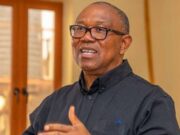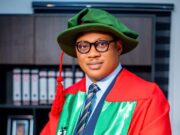Justice Benedict Kanyip of the National Industrial Court of Nigeria (NICN), Abuja, recused himself on Tuesday from hearing cases filed by 62 former staff members of the Central Bank of Nigeria (CBN) who were recently dismissed from the bank.
The judge, who is also the President of the NICN, withdrew from the cases after it was revealed that one of the lawyers representing the CBN’s legal team, Mr. Damian Dodo, SAN, is his in-law.
The 62 claimants, all ex-CBN staff, had filed individual lawsuits against the bank, challenging their recent disengagement. One of the lawsuits, marked NICN/ABJ/26x/2024, was filed by a team of lawyers led by Ola Olanipekun, SAN.
The claimants are seeking to have their termination letters nullified, arguing that the CBN’s action violated the provisions of the CBN Act 2007 and the bank’s Human Resource Policies and Procedure Manual (HRPPM).
The claimants are also requesting that their employment contracts be declared valid, and they seek an order for reinstatement to their previous positions or higher ones.
Additionally, they are asking for back pay, including salaries, allowances, and other entitlements that would have been earned if their employment had not been wrongfully terminated.
On Tuesday, 31 of the 62 lawsuits were listed for hearing, with the remaining cases scheduled for Wednesday.
Counsel for the claimants also filed a motion to consolidate the cases.
During the hearing, Olanipekun informed the court that the case was scheduled for mention, and CBN’s lawyer, Obafemi Agaba, announced that several law firms, including D.D. Dodo, SAN & Co, would represent the bank.
It was then that Justice Kanyip noted that Damian Dodo, SAN, was his in-law and expressed his discomfort in continuing the case.
After seeking the counsel of the claimants’ legal team, Justice Kanyip decided to recuse himself from the matter, and ordered the case, along with the other related suits, to be reassigned to a different judge for further proceedings.
Both Olanipekun and Agaba expressed confidence in the judicial process, with Agaba emphasizing that justice must not only be done but be seen to be done.

















